In the latest episode of the Biz Doc Podcast, Tom Ellsworth covers the crisis of American savings accounts as consumers continue to spend and spend; but his case study for the week ends the episode on a positive note through a discussion of Lucid Motors, an exciting new company making waves in the EV market.
Lucid is most known for the “air vehicle,” but Biz Doc wants to give a full treatment of its origin and history.
The company was founded in 2007 as “Atieva.” Bernard Tse, the former Tesla Vice President, was a part of it, as was the co-founder of Astoria Networks Sam Weng and inventor Sheaupyng Lin.
It was originally focused on building EV batteries and powertrains for other manufacturers. Lucid’s CTO (now CEO), Peter Rawlinson, was previously the Vice President of engineering and chief engineer of the Model S at Tesla.
In 2016, it was rebranded as “Lucid Motors” and it announced a $700 million Advanced Manufacturing Plant, or “AMP-1” in Casa Grande, Arizona.
In 2018, Saudi Arabia Pubic Investment Fund announced a $1 billion future investment contingent on Building AMP-2 near Jeddah, which is Saudi Arabia’s second-largest city as of 2023.
At the time, Lucid announced it would be building “Air Sedans,” with several different tiers: Pure, Touring, Grand Touring, and Sapphire, for a price range of $75,000 to $250,000. It was said to reach up to 1,234 horsepower with a 500-mile range. They wanted to be the BMW of EVs, slightly better than Tesla’s Model S.
They also announced the gravity SUV, teased in 2020 and set to launch in 2024.
Learn the benefits of becoming a Valuetainment Member and subscribe today!
In 2019, Peter Rawlinson was named CEO. In 2020, they completed the AMP-1 in Arizona.
In July 2021, they did a SPAC IPO and got $4.5 billion from it. A Special Purpose Acquisition Company (SPAC) is a quick way to get onto the stock market, when you merge with an “empty” company on the stock market and then announce it’s really you.
$2.1 billion was from the SPAC itself (at $10 a share) and $2.5 billion from a PIPE ($15 per share = valuation of $24 billion). PIPE is a way of private entities or individuals investing in public stocks, not buying it through an option on the stock market. The Saudis paid this for a premium. Now, the Saudi PIF owns approximately 60 percent.
So now with $4.5 billion, Biz Doc asks, what could possibly go wrong?
Well, Lucid set out with its public status, went all the way up to $91 billion in November 2021 (having delivered under 200 cars), and then hit another high watermark during COVID. But they have been sliding down with announcements and delays with delivering the cars ever since.
As of today, in November 2023, they are under $9 billion (a 93 percent drop). People know a novel car company won’t start earning record profits immediately, but the market can also get impatient with you if you stall long enough.
What problems were causing this impatience? They announced they were cutting the price of the Air anywhere from $5,000 to $12,400. Additionally, some of these models with higher price tags were not eligible for the $7,500 government subsidy. Thus, revenue went down because of their price cut.
Furthermore, their sales and production went down. They produced 1,500 cars in Q3, selling only 1,457, and their annual totals went down from 8,500 from 10,000.
All of a sudden, Lucid announced a partnership with Aston Martin, with the former providing the latter with motors and batteries. They were going back to their original business model of being a battery and motor manufacturer while still trying to be a car company in their own right.
But is this so unique? Biz Doc takes a look at other EV companies and how they began.
Ford lost $62,016 per car in Q3 2023 if you look at the numbers in the most unforgiving light. Lucid lost $227,802 per car by the same standard. This is technically correct, but look closer.
Rivian lost $124k in Q1, $67k in Q2, and $30k in Q3. It’s been going down and down each quarter. These companies are not actually losing this much on each car, but rather this is across the total of their expenditures—and high expenditures are expected in companies engaged in testing and development.
Nevertheless, massive EV investment is ahead of profits. EV realities are starting to emerge: the early adopters have made their purchases already, and now we have high interest rates on car loans with consumers reluctant to pay premiums.
And finally, all EV companies suffer from a lack of readily available charging stations across the US and its major cities, either causing its consumers grief and discomfort or bringing on high costs for the company to pay for Tesla station access.
Watch the full video to hear Biz Doc discuss savings accounts and what key principles he thinks we can take away from this Lucid case study.

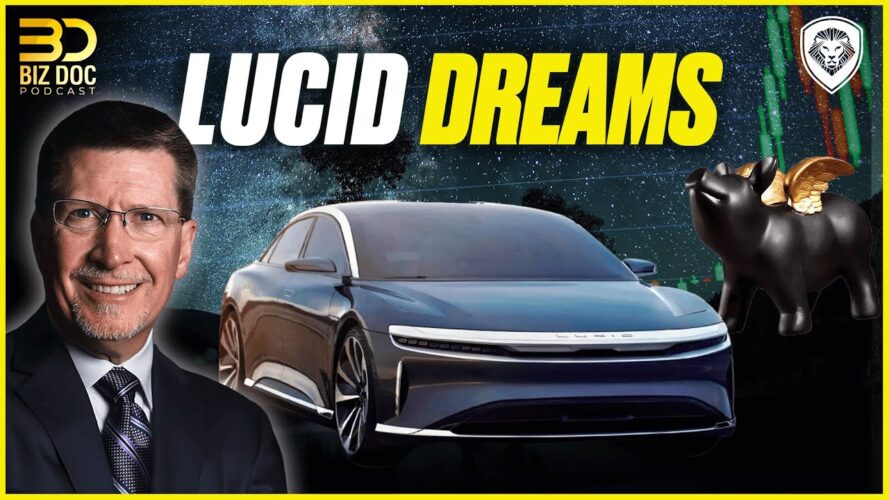
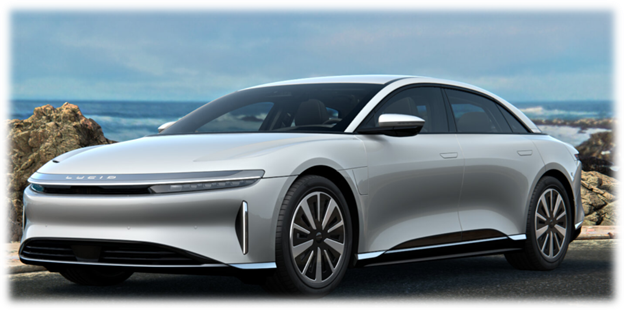
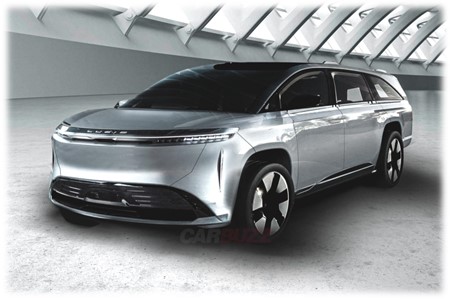
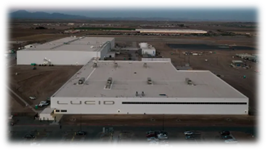
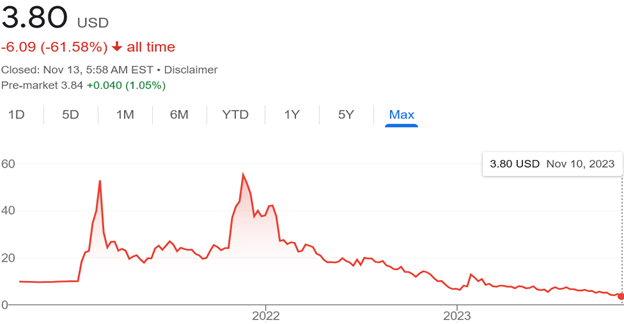
















Add comment